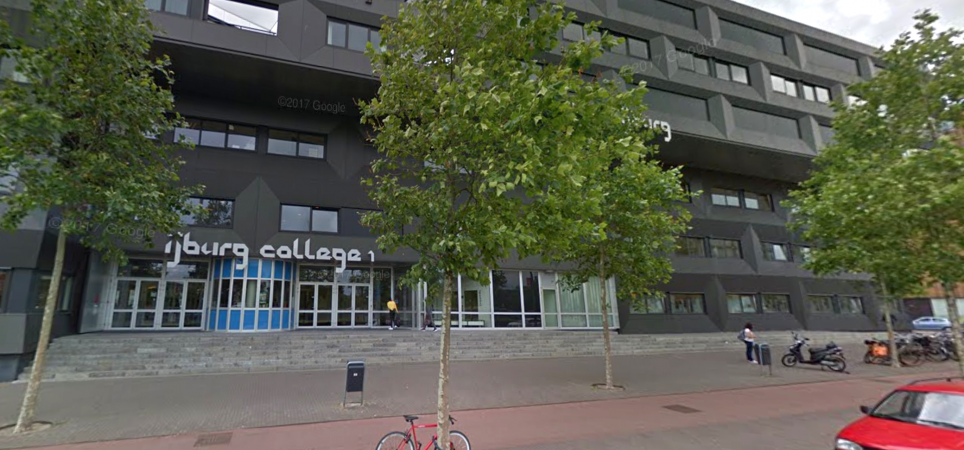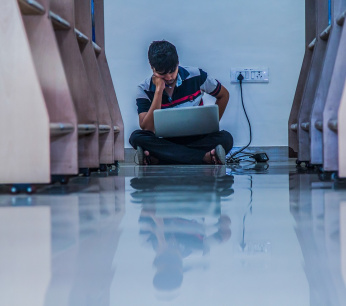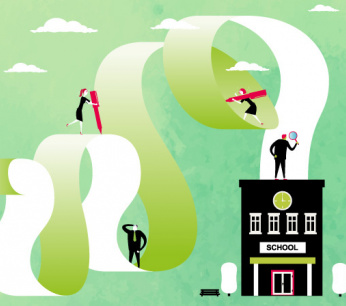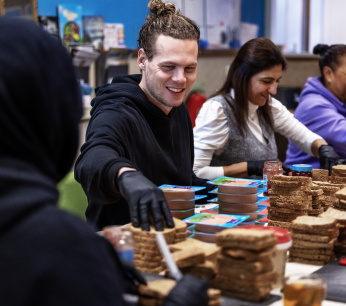Financial situation IJburg College already dire
The Amsterdam IJburg College, which was placed under stricter financial supervision by the Education Inspectorate at the beginning of this year, had been in a precarious financial situation for much longer.

Image: Google Maps
Since 2009, the reserves have been well below the inspection threshold. From 2011 to 2013, the equity capital was even minus. This is evident from an analysis made by the Onderwijsblad based on the annual reports of the school, which was established in 2006.
The former school management tried unsuccessfully for years to get the financial position in order. Too rosy forecasts and a lack of control over expenditure hindered this recovery.
Measures
The inspection * The Education Inspectorate responds: 'It is true that the solvency2 (equity including provisions / total assets) in particular has been low for several years. However, the IJburg College is a relatively new board that needed time to build up equity capital. In the first instance, we gave the board the benefit of the doubt, partly because of the growth in student numbers and the additional funding received for this from the Ministry of Education, Culture and Science, supplemented at the end of 2013 with the funds from the Autumn Agreement. In the meantime, we have followed the development of the financial position of the IJburg College in accordance with the regular approach. From 2013 to 2015, the IJburg College achieved positive results every year and positive results were also budgeted for the coming years. Shareholders' equity rose and with it solvency. The school also continued to grow as far as students were concerned. There was therefore no reason to place the IJburg College under adjusted financial supervision. IJburg College achieved a negative result of -2016% in 5,55, while a positive result of 2% had been estimated. The negative result made shareholders' equity negative. This was stated in the annual accounts, which prompted us to ask the board questions. During the interview with the then interim director, it turned out that in 2017 there was no longer growth but shrinkage. Furthermore, the board also seemed to end up with a shortage in 2017. We have adjusted financial supervision based on this. ' initially gave the school 'the benefit of the doubt', because it is a relatively young school that was on the rise and because it has been slightly better financially since 2013. Last year that changed. Then it turned out that the school had unexpectedly written deep red grades in 2016 and was again heading for a shortage in 2017. Shareholders' equity has been negative again since 2016.
Financial measures were taken last summer. For example, one in six teacher jobs has been cut, 20 FTEs in temporary contracts. According to interim director Richard Troost, appointed at the beginning of March, it is badly necessary to build up reserves, but there is no acute financial need. He uses monthly reports to monitor whether the expenditure is in line with the budget.
“It's a shame we have to talk about money, because it's a really nice school. We will ensure that this cannot happen again in the future. ”
The IJburg College opened its doors in 2006 as a broad school community VMBO-HAVO-VWO with an innovative educational model. The school is divided into sub-schools, with small-scale education developed by the team itself. In April 2011 and December 2016, two brand new buildings were completed, tailored to the teaching concept.
The school once had the ambition to grow to two thousand students. The school experienced rapid growth up to and including 2014. After that, the growth curve flattened to 1450 students in 2016. An increase of fifty students was expected for the current school year, but the number of students dropped by thirty.
Next school year there will likely be another decline. The number of new registrations is now at 240 after the first registration period. The school hopes to eventually match this year's intake (275 students).
Jong
Just like the school itself, the teachers are relatively young: two thirds are not older than 45 years. The school made a conscious effort, according to the annual reports: with an average workforce that is well below the funding standard, the school was able to put more hands in the classroom for the same money for years.
Nevertheless, the IJburg College suffered losses up to and including 2012, partly because the school had to pre-finance its growth. As a result, shareholders' equity dropped to a minus in 2011. In 2013, things finally seemed to be getting better financially, albeit mainly thanks to an unexpected windfall from The Hague. The positive result was largely due to a one-off extra from the Autumn Agreement. In 2014, when student growth began to slow, the school last received additional funding from the Ministry for fast-growing institutions.
Macbooks
At the same time, the number of teachers continued to grow, from one hundred full-time jobs in 2014 to almost one hundred and twenty in 2016. The school also invested heavily in equipment. In 2014, eight hundred thousand euros went to ICT infrastructure in an emergency building and expensive Apple Macbooks, among other things. Two years later, another XNUMX was added for ICT facilities in the completed new building. Necessary expenditure because education is largely provided digitally, is the reasoning.
That year, 2016, the spending got out of hand. A shortage of six and a half tons wiped out the small buffer that had been built up in one fell swoop, and the school also ended up at a loss in 2017. By cutting the number of teacher jobs, the student-teacher ratio increases from 12,2 to 15, approaching the national average.
Mission
This month Richard Troost took office as the new interim manager, the third director in seven months. Last summer, director-director Lou Brouwers left, for a long time the driving force behind the innovation school. The supervisory board subsequently appointed interim director Mieke van den Broek, who disappeared from the scene last month.
“I don't judge what happened before my time,” says Troost. “But you don't have to be a brain surgeon to see that the money has not been properly monitored. I think the school was in an enormous positive flow for a long time thanks to the growth and all the positive attention, and then the management received less attention. A shame, because it is a beautiful school with a social mission: a place where pre-vocational secondary education students and pre-university students meet. ”
It is a beautiful school with a social mission: a place where pre-vocational secondary education students and pre-university education students meet.
The education levels all have a basic arrangement, although the quality is vulnerable according to the Education Inspectorate. Is the educational model under discussion now that the workforce has been cut? No, Troost responds resolutely.
"It is good to think about how we can alleviate the workload together," said the interim director. “We have a lot of young, enthusiastic teachers here, who make all the teaching materials themselves. A question that I am going to ask the teachers: is it an idea to reduce the pressure by purchasing some of the material? Maybe we can make things a little easier for ourselves in this respect. ”


